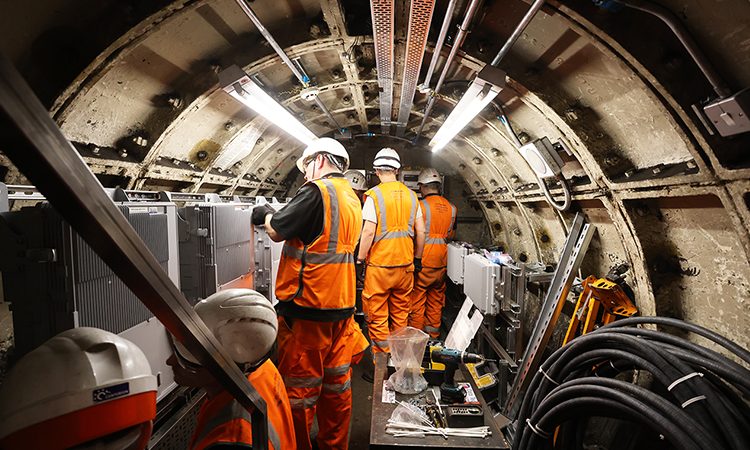TfL’s latest budget achieves operating surplus for transport improvements
- Like
- Digg
- Del
- Tumblr
- VKontakte
- Buffer
- Love This
- Odnoklassniki
- Meneame
- Blogger
- Amazon
- Yahoo Mail
- Gmail
- AOL
- Newsvine
- HackerNews
- Evernote
- MySpace
- Mail.ru
- Viadeo
- Line
- Comments
- Yummly
- SMS
- Viber
- Telegram
- Subscribe
- Skype
- Facebook Messenger
- Kakao
- LiveJournal
- Yammer
- Edgar
- Fintel
- Mix
- Instapaper
- Copy Link
Posted: 22 March 2023 | Intelligent Transport | No comments yet
TfL’s 2023/24 budget shows that it can cover operational costs and invest in new services, with billions earmarked for transport network improvements, while calling on the UK government to provide longer-term funding for capital investments.


Credit: Transport for London
Transport for London (TfL) has announced that its latest budget shows that it will achieve an operating surplus in 2023/24, with revenues covering the costs of the existing transport network. This means that TfL is expected to achieve financial sustainability and deliver transport improvements across the whole of London.
Across the next financial year, TfL’s £9.1 billion in revenue will cover its expected £7.9 billion operating costs – which cover the operational running of the agency’s services in London – £745 million in capital renewals and £417 million in net interest costs that it will accrue. This will mean that TfL will achieve an overall operating surplus of £79 million, which will then be re-invested directly into enhancements across the transport network as part of TfL’s wider £2 billion capital programme, with any government funding in 2023/24 allocated to fund capital investments across the network.
The budget also outlines how with continued government support for capital improvements, a wide range of schemes benefitting the whole of London can be delivered in the coming years.
Since 2016, TfL has saved £1.1 billion from its annual operating costs, and it is currently working on the delivery of £600 million in further savings commitments as set out in its Business Plan. During 2023/24, the TfL Budget will ensure the delivery of a number of schemes to improve London for everyone, especially in outer London boroughs where car usage is higher.
These schemes include improving the bus network in outer London, launching the first of 54 new, state-of-the-art trains on the Docklands Light Railway, progressing work to replace the 1970s-built Piccadilly line trains with a new fleet with walk-through carriages and air-conditioning, expanding the Ultra Low Emission Zone (ULEZ) across all London boroughs from 29 August 2023, introducing the full peak timetable in May 2023 on the Elizabeth line, ensuring TfL is the strong green heartbeat of the city by making its services more sustainable through more zero-emission buses, upgrading LED lights in Tube stations and across the road network to reduce energy consumption, as well as implementing more sustainable drainage across the road network.
Further improvements include:
- Improving accessibility across London to ensure that the network is as accessible as possible
- Building on the 14.6km of cycle routes that TfL and boroughs have delivered since April 2022, with further improvements to cycling routes across London
- Completing tunnelling works and associated road changes for the Silvertown Tunnel, which will provide new public-transport options across the river and reduce congestion at the Blackwall Tunnel when it opens in 2025.
The 2023/24 budget has been developed on the assumption that the current funding agreement with the government, which lasts until April 2024, remains in place, including in relation to adjusting the quantum of support provided to TfL in 2023/24 to reflect latest inflation rates.
While TfL has a current funding agreement with the UK government until the end of March 2024, there is also a pressing need for the government to confirm the £475 million that TfL needs in 2024/25 to support the delivery of the committed contracts for rolling stock and signalling on the Piccadilly line and the DLR.
The Mayor of London, Sadiq Khan, said: “Before the pandemic, prudent financial management had placed TfL on the cusp of breaking even for the first time in its history. Now, after a very difficult few years due to the pandemic, we are set to deliver a surplus for the first time ever. However, the hard work is not over and we will work with the government to ensure we get the national investment we need to continue delivering a world-class transport network for our city – something that is so crucial to building a greener, fairer and more prosperous London for everyone.”
London’s Transport Commissioner, Andy Lord, said: “I’m immensely proud of the hard work that everyone at TfL has contributed to get us to this significant point in our financial recovery. Operational self-sufficiency means we can run a safe, affordable and reliable network for all, while delivering real and vital improvements for the city as part of our vision to be the strong, green heartbeat of London.”
Related topics
Accessibility, Active travel, Air Quality, Alternative Power, Fleet Management & Maintenance, Infrastructure & Urban Planning, Mobility Services, Public Transport, Sustainable Urban Transport
Related modes
Bus & Coach
Related cities
London
Related countries
United Kingdom
Related organisations
Transport for London (TfL), UK Government
Related people
Andy Lord, Sadiq Khan








